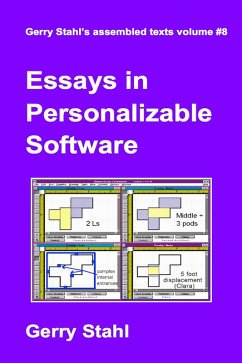The idea of personalizable software is fashionable today. I explored it in a number of software prototypes a decade or two earlier. The perspectives mechanism in Hermes, my dissertation software system, was an initial major initiative in this direction, allowing specialists to personalize their views of designs and associated design rationale. WebNet was a follow-up system to integrate the perspective mechanism into discussion-forum collaboration software. Subsequent systems explored personalization mechanisms in systems for work and for learning, including TCA for teachers developing and sharing curriculum and systems for automated critics in design systems or reviewers of journal articles. In each case, the mechanisms were intended to support users to view and discuss materials from their personal perspectives and to share those views with others to encourage building group perspectives. The volume is organized in terms of essays on (a) structured hypermedia, (b) personalizable software, (c) software perspectives and (d) applications to health care, education and publishing.
Dieser Download kann aus rechtlichen Gründen nur mit Rechnungsadresse in A, B, CY, CZ, D, DK, EW, E, FIN, F, GR, H, IRL, I, LT, L, LR, M, NL, PL, P, R, S, SLO, SK ausgeliefert werden.









